A new gameplay mechanic is arriving to challenge Genshin Impact players with a game unlike anything Teyvat has seen yet.
The Genius Invokation TCG is arriving in the Version 3.3 update and will implement a permanent card duel gameplay mode that all players will have to learn how to play.
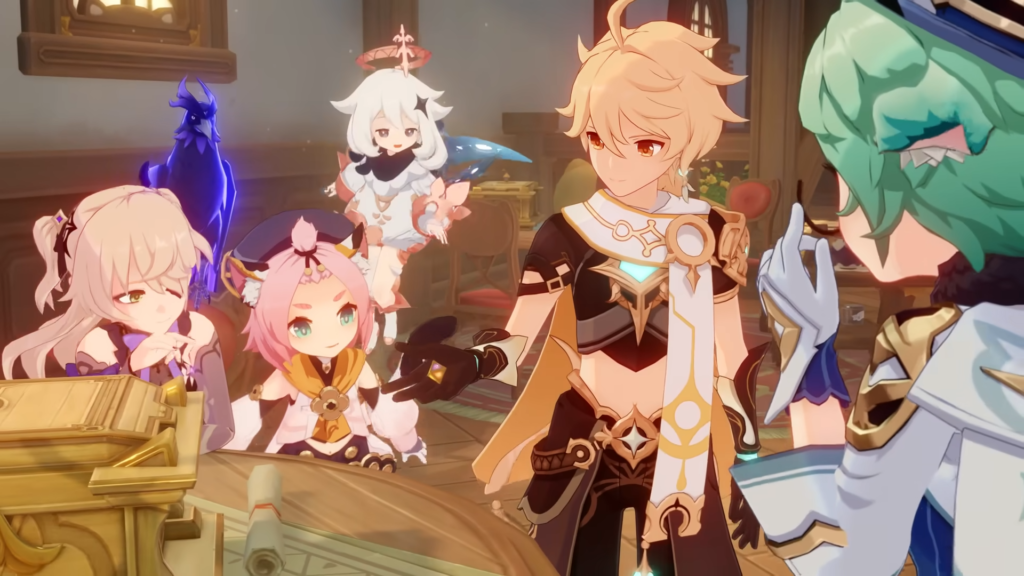
Related: 30 prettiest locations in Genshin Impact to take in the scenery
MiHoYo describes the Genius Invokation TCG as “a tightly paced, heart-stopping tabletop dueling game.” This new permanent gameplay mode will stay in Teyvat following the official release of the Version 3.3 update of Genshin, so players will want to figure out how they can compete so they’re ready to take on this challenge.
Rules for Genius Invokation TCG in Genshin Impact
The main goal of Genius Invokation TCG is to successfully defeat the opponent using only a deck of cards in a game mode that is entirely a complex card game. All players’ ultimate goal is to vanquish all of the opposing player’s Character cards and have their own cards still standing.
All card types in Genius Invokation TCG
To accomplish this goal, players will need a variety of cards within their deck. Luckily, every deck in Genius Invokation TCG has two types of cards within it:
- Character cards: These cards are at the center of Genius Invokation TCG’s gameplay and feature iconic Teyvat characters that players are familiar with.

- Action cards: This type of card is further broken down into three different variety types and features motifs that are not characters, such as weapons, scenes, and locations. Action cards have different effects depending on which of the three varieties they are. Players may find:
- Equipment cards: These can be equipped onto Character cards to grant an equipment-based boost to that character. Equipment cards feature weapons and artifacts.
- Event cards: Every Event card comes with a special effect that will immediately activate upon being played.
- Support cards: This type of card can be placed in the Support Zone to continuously grant special effects. Support cards essentially provide players with unique buffs.

How to create a deck in Genius Invokation TCG
Players can create and set a valid deck by using the Casket of Tomes in their inventory. For a deck to be usable in a Genius Invokation TCG duel, it must meet the following requirements:
- A deck must have three valid Character cards. This includes those like Jean, Cyno, Diluc, Kamisato Ayaka, and other playable characters from across Teyvat.
- A deck must have 30 valid Action cards. This includes Equipment cards, Event cards, and Support cards.

All game areas in Genius Invokation TCG
Genius Invokation TCG’s gameplay is primarily centered around the specific game areas that players will see when entering a card game duel. These areas are:
- Character Zone: All chosen Character cards will be moved into the Character Zone as soon as a game of Genius Invokation TCG begins. Players will then need to select one character to be the active one on the battlefield able to use their skills. Just like in regular Genshin gameplay, players can swap them out to use the abilities of the other characters on their team.
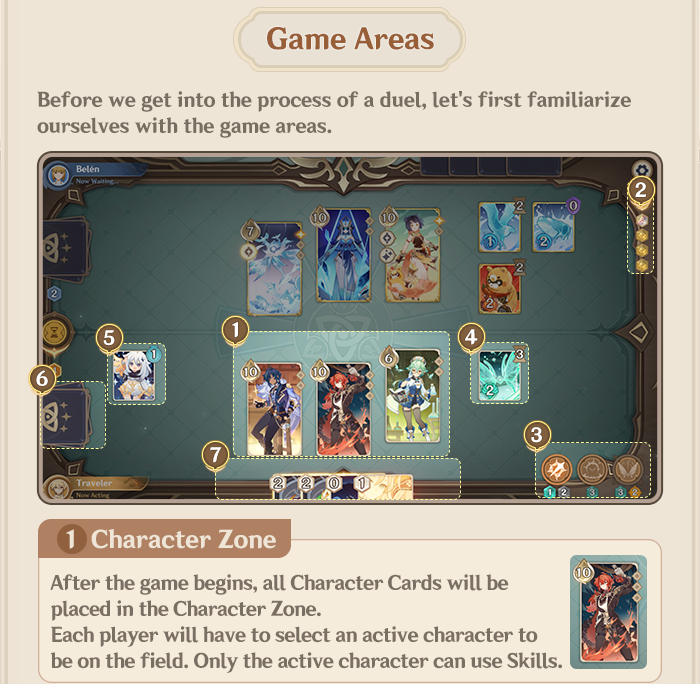
- Elemental Dice: At some points during Genius Invokation TCG’s gameplay, players will need to roll the Elemental Dice as payment for certain actions. The Elemental Dice may come in any of the seven elements, which are Anemo, Hydro, Electro, Dendro, Cryo, Pyro, and Geo, or may also come in a special Omni Element variety that works as a wildcard and can function as any of the elements.
- Character Skills: This game area highlights the skills that are available for the active character to use. This area will change depending on which character is selected to be the one on the battlefield dishing out damage.
- Summons Zone: Certain character skills can summon special abilities into the Summons Zone. These Summons will serve to help the player in their duel and up to four Summons may be active at once.

- Support Zone: Players can equip special buffs by adding Support cards to the Support Zone. Up to four cards can be within the Support Zone at any given time.
- Draw Pile: Prior to when an official game begins, all Action cards are shuffled around and placed within the Draw Pile. Players will then draw cards from the pule throughout the card duel and add the cards to their hand.
- Hand: The final game area that players will find in Genius Invokation TCG is the hand, which is their own collection of cards. Players will draw cards from the Draw Pile throughout a round of Genius Invokation TCG and add to their hand for a total of up to 10 cards.

How to play Genius Invokation TCG
With all the rules, card types, game areas, and general gameplay functions in mind, players can now move on to how an actual game of Genius Invokation TCG works. Genius Invokation TCG is a turn-based game, which means that regardless of who players face in this game, the turns will go back and forth repeatedly. Every duel within Genius Invokation TCG is made up of three overarching phases, which are Preparation, Rounds, and Victory Evaluation.
Preparation in Genius Invokation TCG
Prior to a round of Genius Invokation TCG officially beginning, players must complete the Preparation part of gameplay. Both sides will take five cards from the Draw Pile, which will make up their hand. Both sides then have one chance to swap out any cards within their hand if they wish to do so. After a starting hand is finalized, both sides then must select their starting active character.

Rounds in Genius Invokation TCG
Once the preparation phase has come to an end, the game moves into the actual round itself, which has three distinct phases. These phases are where the main bulk of the gameplay takes place.
Roll Phase in Genius Invokation TCG
The first phase of Genius Invokation TCG is the Roll Phase. This phase asks both sides to roll eight Elemental Dice that they will then use during the round. After the die has been rolled the first time, players can choose to reroll as many or as few dice as they like one more time.
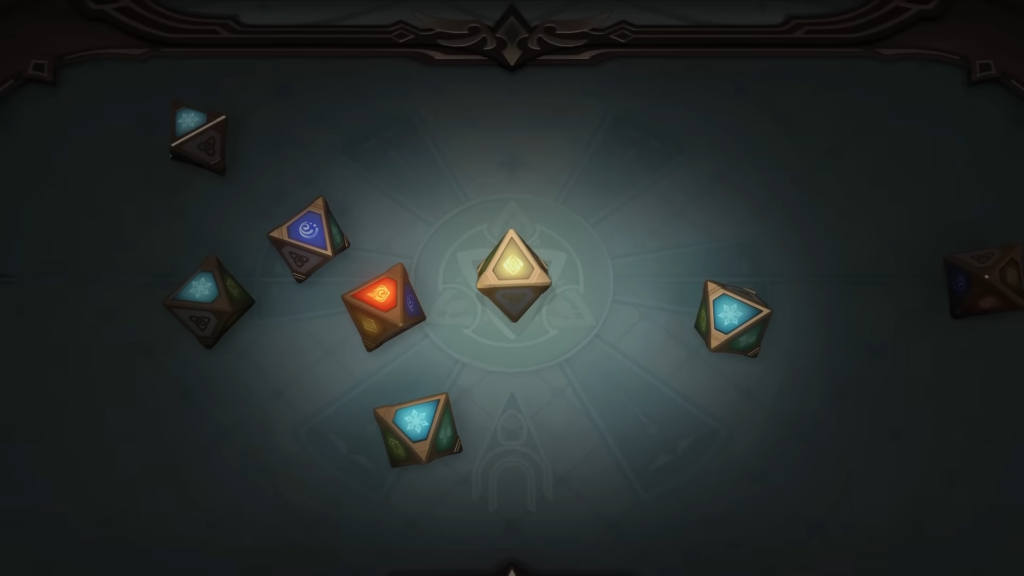
Action Phase in Genius Invokation TCG
Perhaps the most important phase in Genius Invokation TCG is the Action Phase, which is where players will finally get to jump into the action. One player will begin the round and then the gameplay will move back and forth between the two as the round commences.
If players are competing against an NPC, then they will always go first. If players are dueling against another Genshin player, then the player who goes first is randomly selected.
During the Action Phase of Genius Invokation TCG, players may choose to complete a variety of different actions.
- Use Skill: Players can use one skill of their active character and will pay a cost to do so. The cost varies depending on the skill.
- Switch Characters: The active character can be swapped out for another one at the cost of one Elemental Die.
- Play Card: Players can play a card of their choice as long as they pay the requested price, which will vary depending on the card.
- Elemental Tuning: Travelers who need to fine-tune their hand can choose to discard one card and change the elemental type of one of their Elemental Dice.
- Declare Round End: The last action players should take during the Action Phase is to end the round. This will bring not only their turn but also the entirety of the round to a close when both players have selected this option.
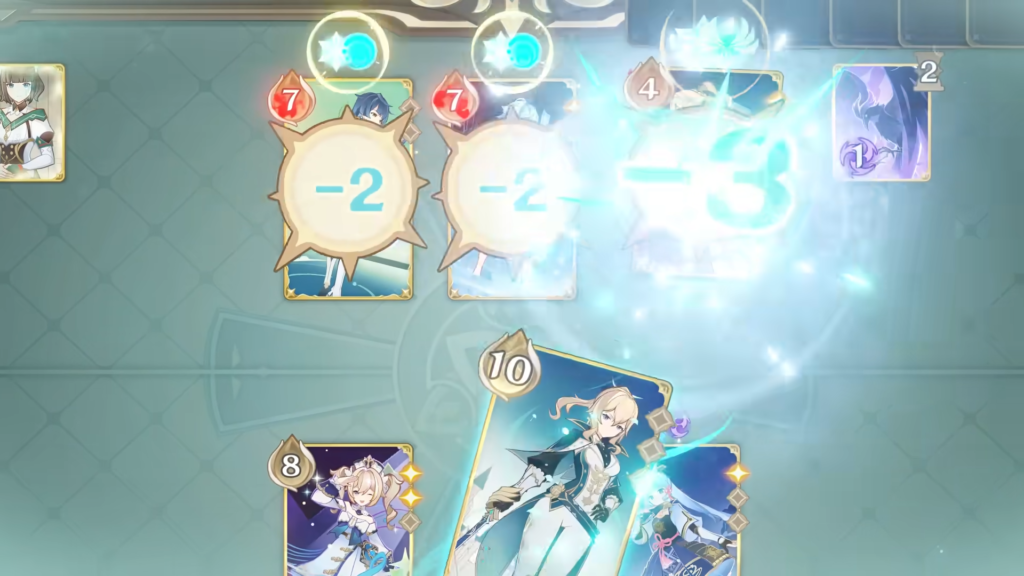
End Phase in Genius Invokation TCG
The final piece of the round is the End Phase, which players will move into after declaring a round over. The End Phase starts with whichever player went first and proceeds by activating the various card effects in order on the battlefield.
Each player then draws two cards from the Draw Pile and the game continues into another round. The game of Genius Invokation TCG will continue cycling through rounds until one of the two players wins.
Victory Evaluation in Genius Invokation TCG
Once all parts of the round have ended, players move into the Victory Evaluation Phase. This is a simple phase where the victor is revealed to be whichever player successfully defeated all characters on the other player’s team and the game comes to a close.
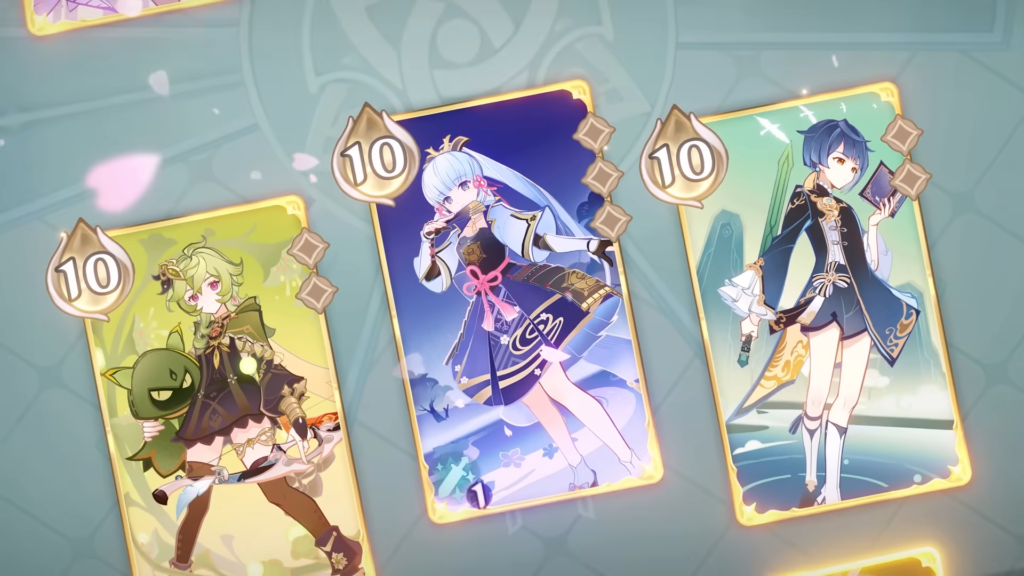
Genius Invokation TCG tips and tricks in Genshin Impact
Just like all other aspects of Genshin’s gameplay, Genius Invokation TCG too can be a bit difficult to master and comes with a learning curve. But there are a few tips and tricks that players can keep in mind while playing to raise their chances of success.
- Although Genius Invokation TCG is a card game, many of its mechanics work in a very similar style to the regular gameplay that players are already familiar with. Thus, to see success, players should remember to keep in mind Genshin’s regular gameplay mechanics when playing. Players should:
- Focus on activating elemental reactions, which will help them deal greater damage.
- Switch between characters fairly regularly. This will ensure that players are using different abilities and thus being more effective in battle.
- Consider which elements are best for taking out others. For example, players taking on a Pyro character might want to use Hydro or Cryo abilities to see success.
- Try out different team compositions when they are struggling. Some characters just don’t function well together and this remains true for Genius Invokation TCG.
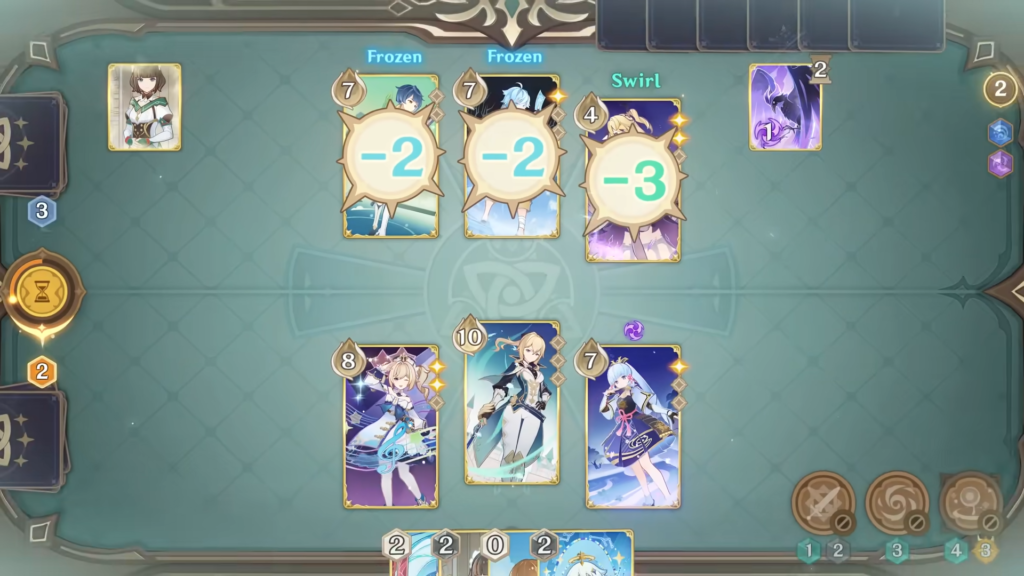
- The order that cards are played in can drastically affect the outcome. Thus, players will want to consider how different cards may be able to build upon each other and try playing all types of cards in different orders to see different results.
- Obtain new cards regularly as more options will help players see more frequent success.


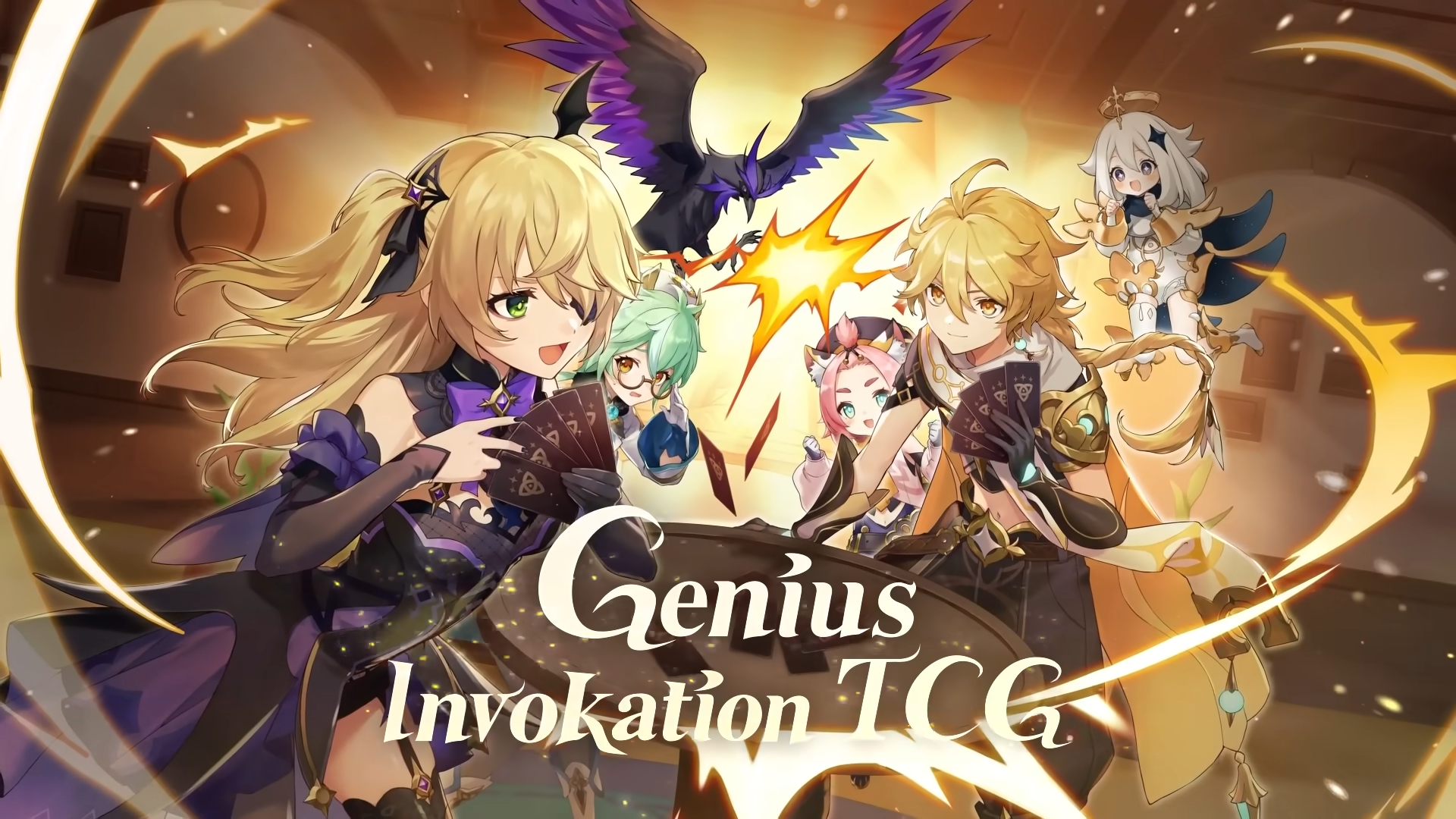
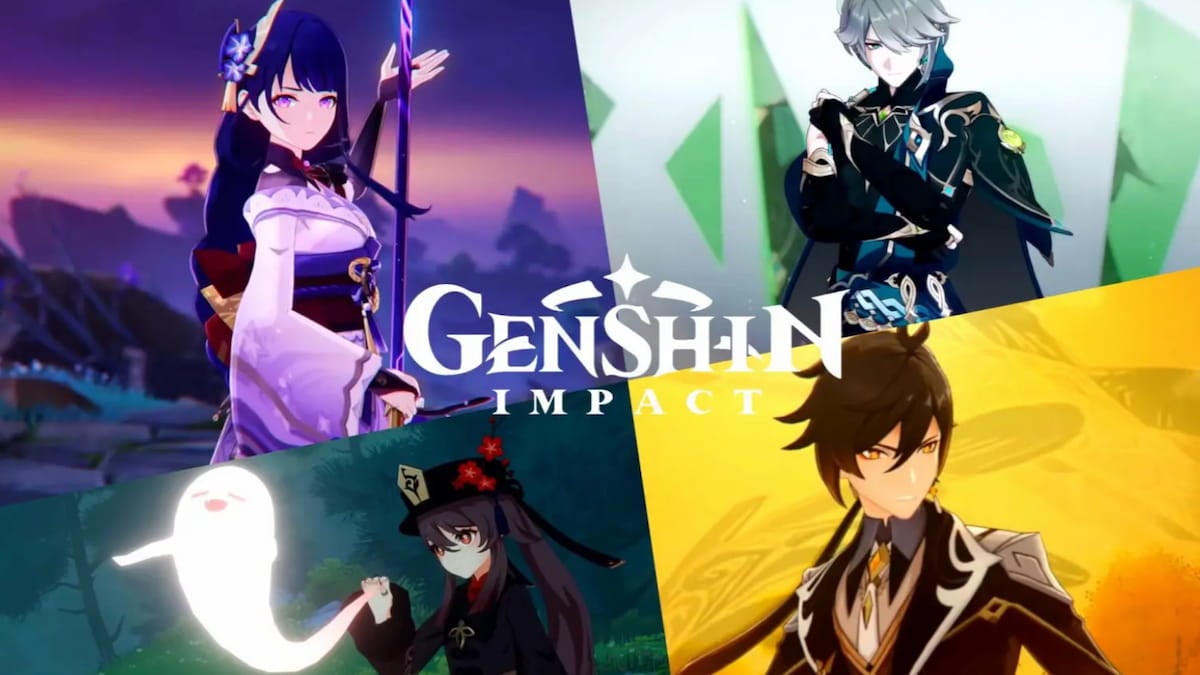
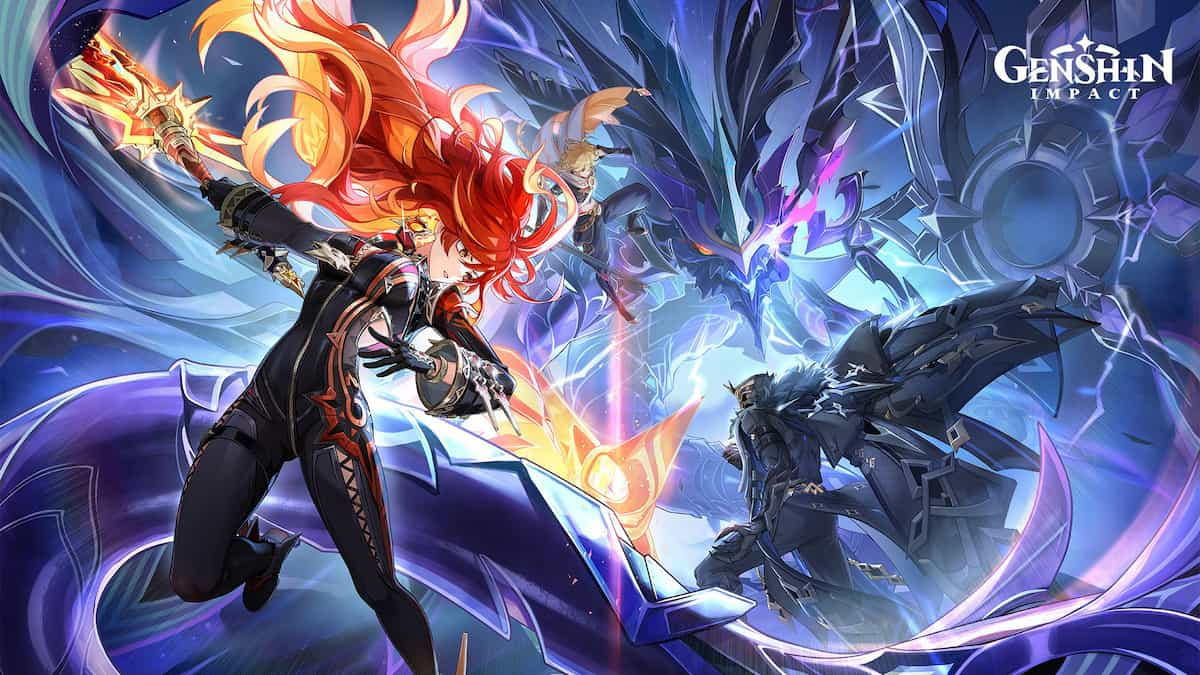
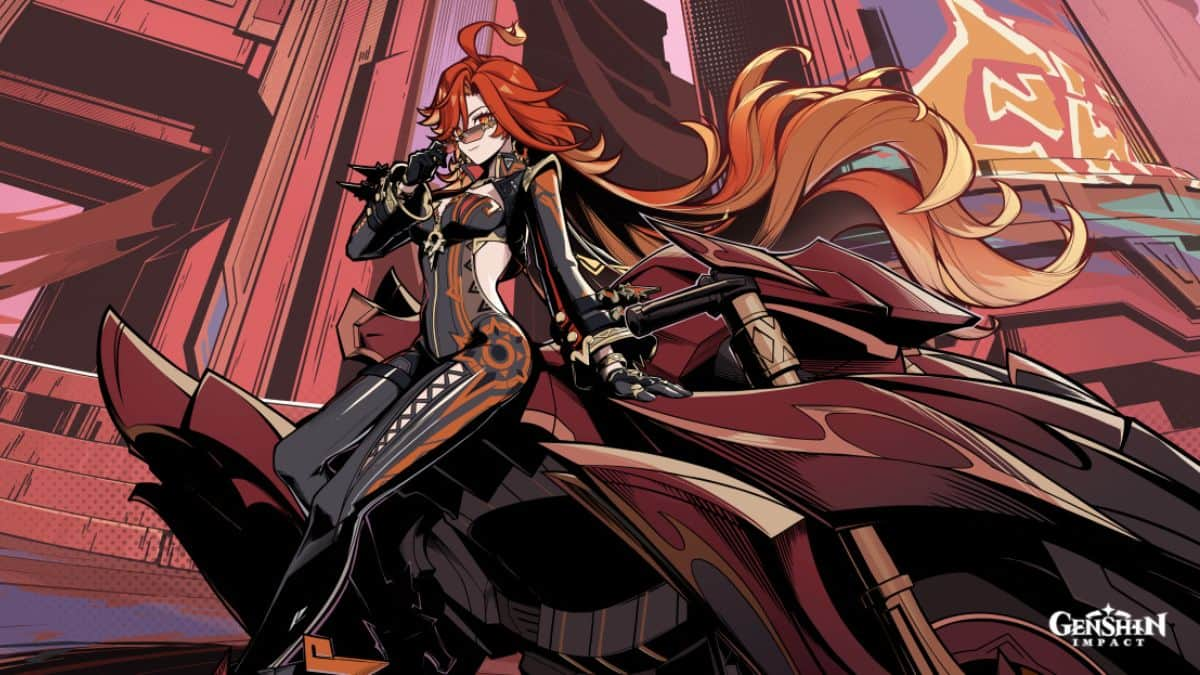
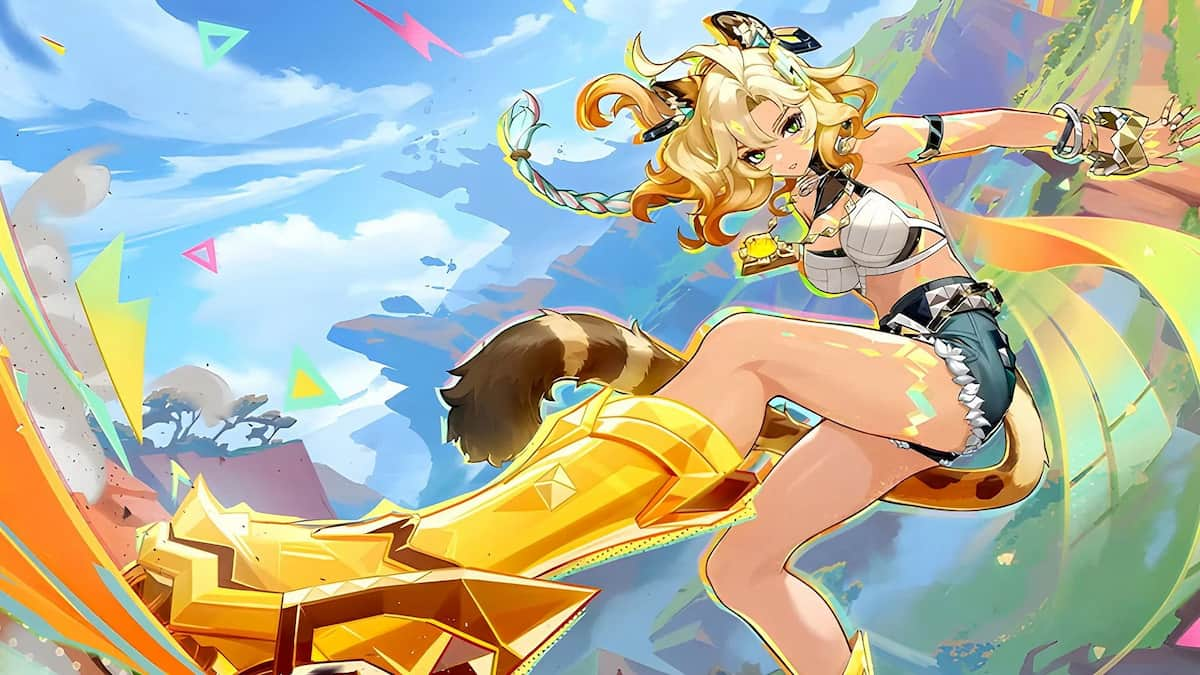


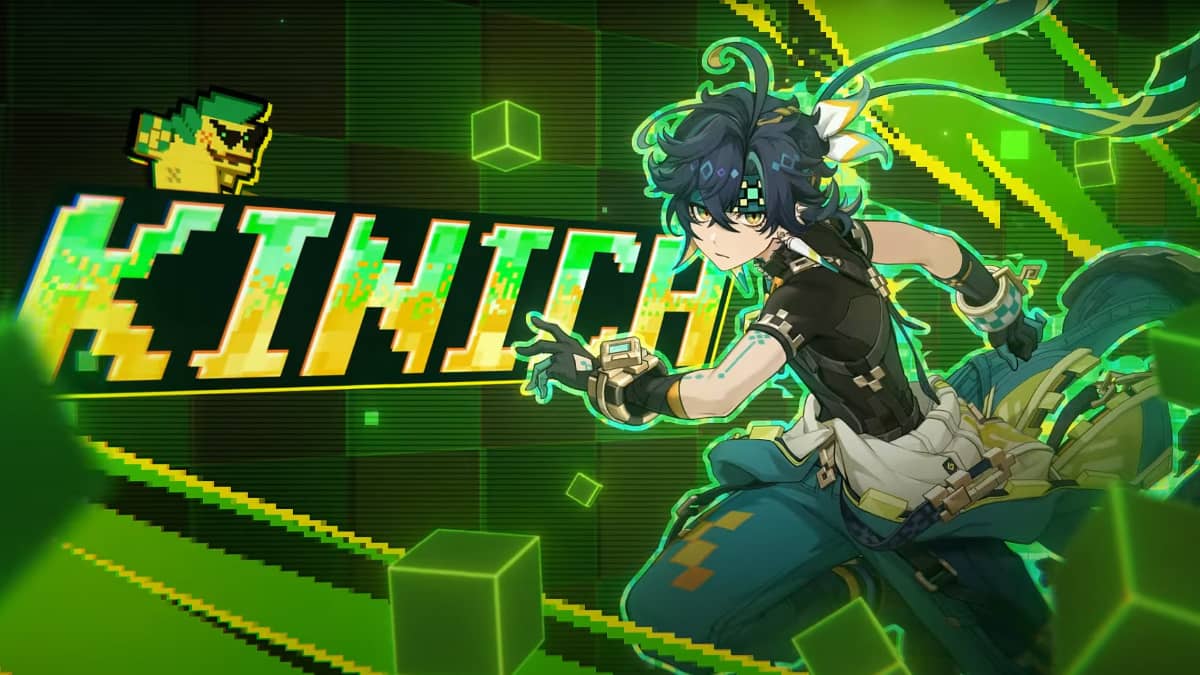
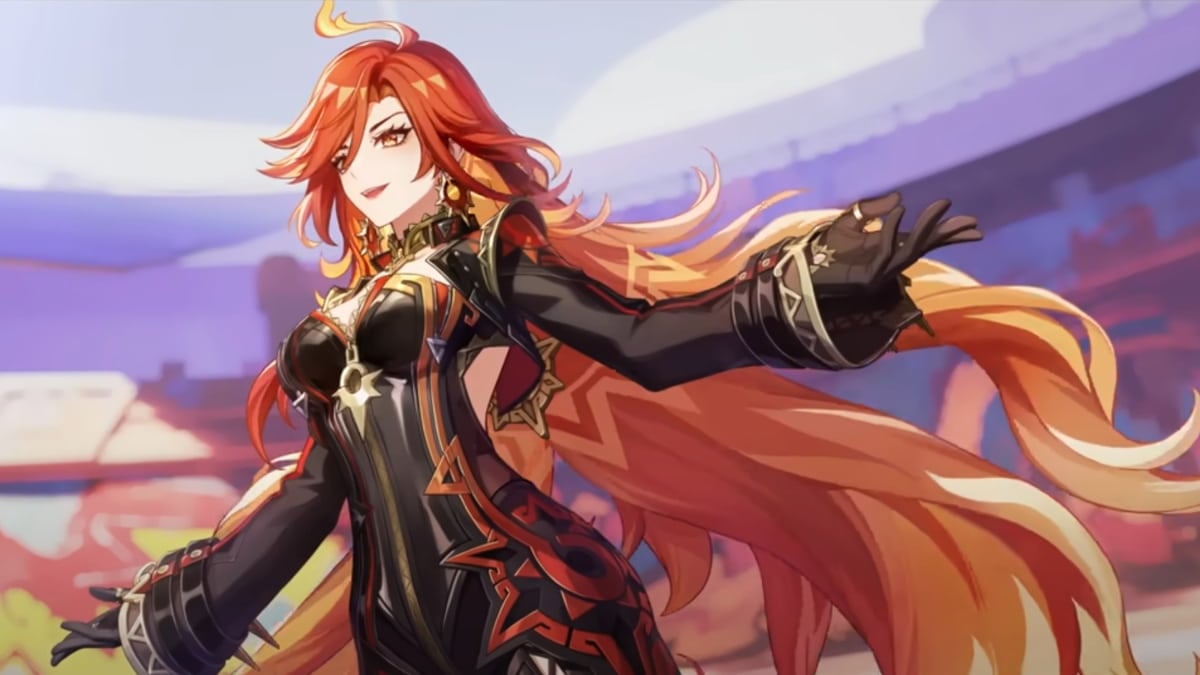
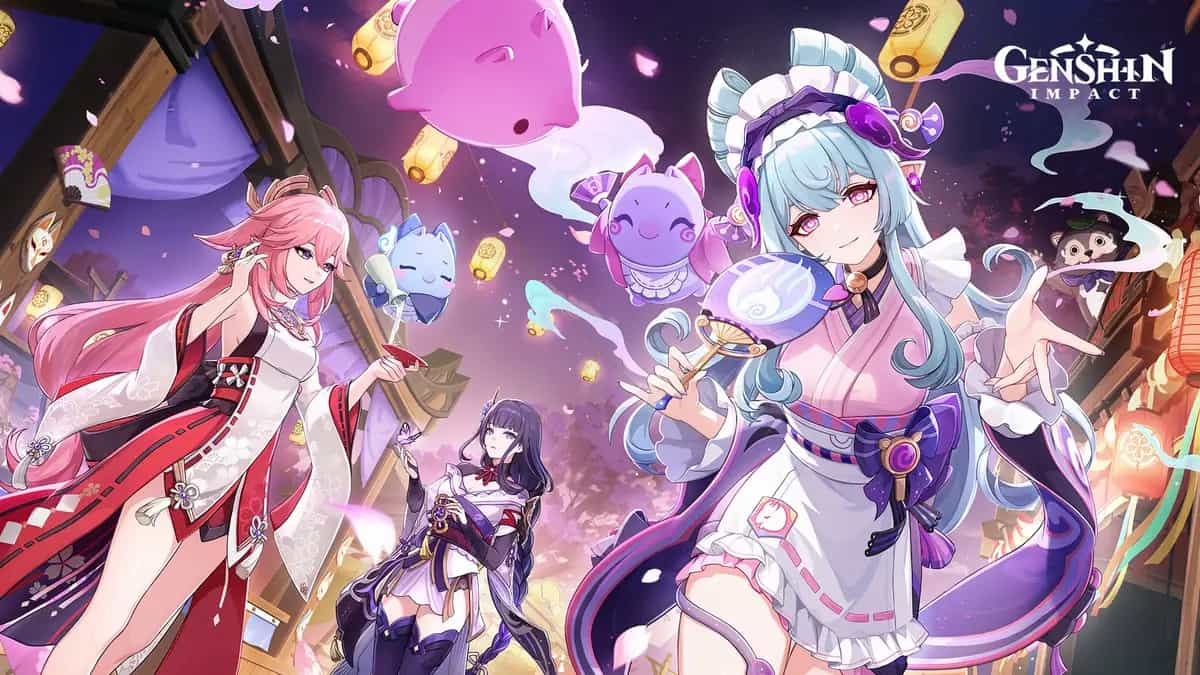
Published: Dec 5, 2022 05:14 pm